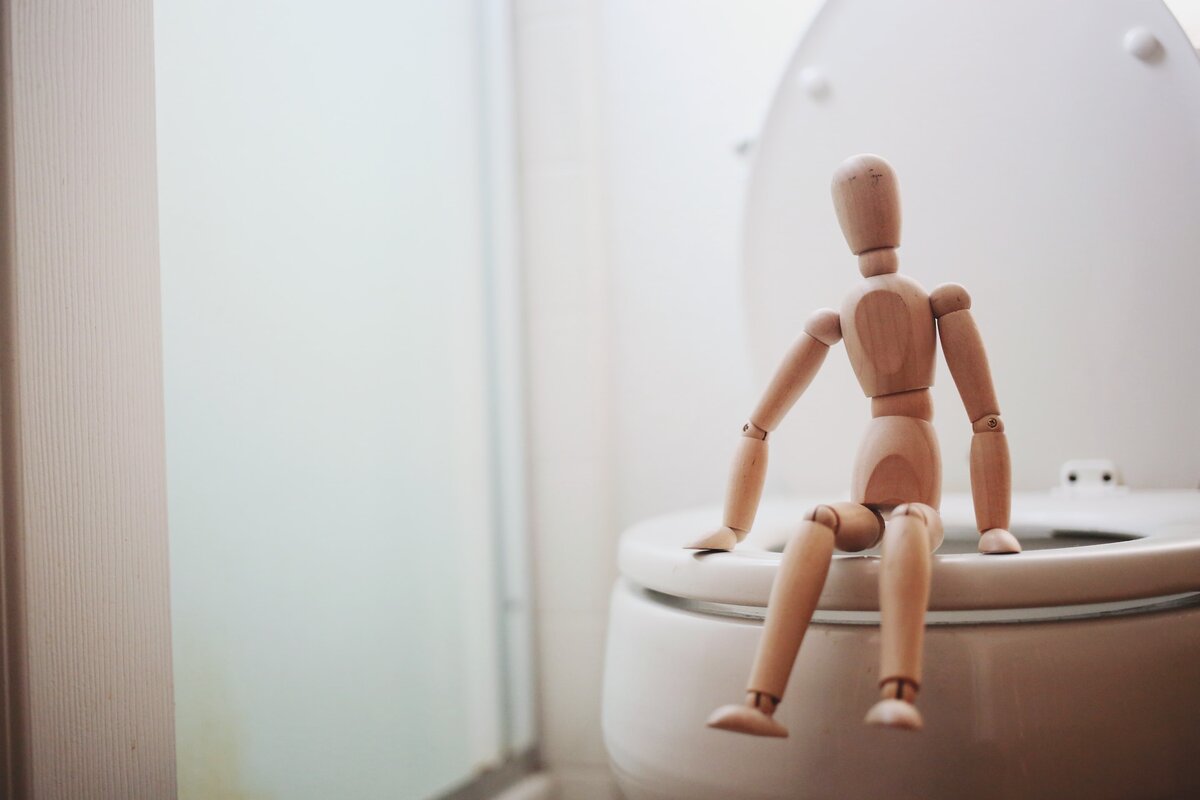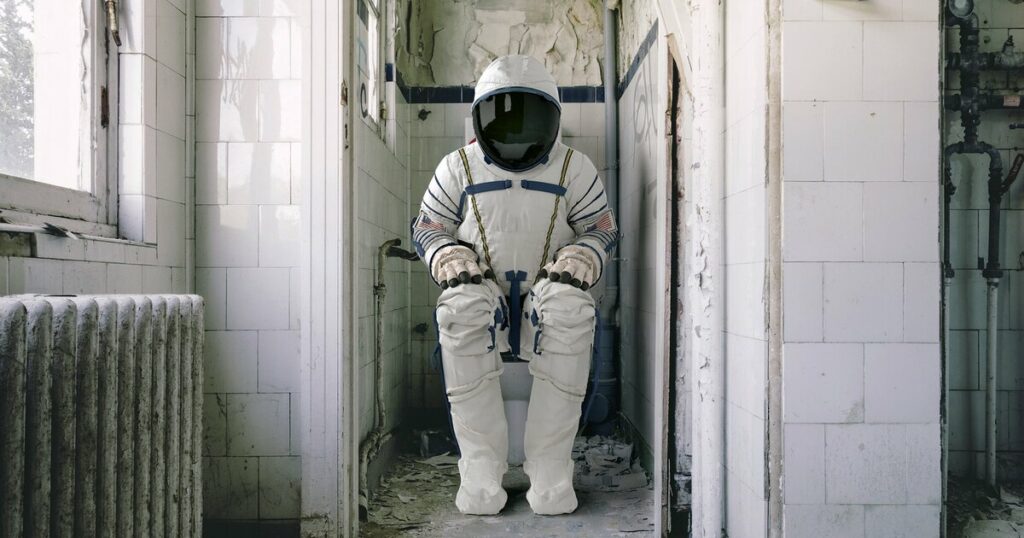Creatine, a popular supplement among athletes and fitness enthusiasts, has been linked to various health benefits. However, there’s growing chatter about its digestive side effects, particularly constipation. With information and myths interwoven in online forums and fitness circles, it’s crucial to separate fact from fiction. This post delves into the science behind creatine and its impact on digestive health, aiming to clarify the misunderstandings and provide concrete answers.
On this page:
What is Creatine? Understanding the Supplement
Creatine is a substance that’s found naturally in muscle cells. It helps your muscles produce energy during heavy lifting or high-intensity exercise. But creatine isn’t just something your body produces; it’s also a popular dietary supplement. Many athletes and bodybuilders turn to creatine supplements for a boost in performance and muscle growth.
The substance is similar to amino acids, the building blocks of protein, and your body can produce it from the amino acids glycine and arginine. About 95% of the creatine in your body is stored in muscles, with the rest found in your brain, heart, and other tissues.
As a supplement, creatine is favored for its ability to increase muscle mass, enhance strength, and improve exercise performance. Scientific studies have shown that it can significantly boost muscle creatine content, leading to better muscle recovery, enhanced endurance, and increased muscle strength.
Creatine supplements come in several forms but the most common and well-researched is creatine monohydrate. It’s affordable, effective, and has a good safety record. When you take creatine as a supplement, it binds with phosphate in the body, forming a molecule called creatine phosphate. This molecule is a key player in the production of adenosine triphosphate (ATP), which is the primary energy currency of the cell, particularly important during bouts of intense physical activity.
While creatine is often associated with muscle power, it’s important to understand exactly what it is and how it works in the body before diving into its potential side effects, like constipation and bloating. Understanding creatine’s role in the body helps us better grasp how it may impact digestive health and what we can do to manage or prevent any unwanted effects.
Investigating the Link: Does Creatine Cause Constipation and Bloating?
Creatine itself is not directly linked to constipation. However, when consumed, some users report creatine constipation, as it pulls water into your muscles, which might reduce the amount of water available in the rest of your body, including your digestive system.

Insufficient water in the intestines can lead to harder stools and less frequent bowel movements, which are classic signs of constipation. Bloating, on the other hand, can occur as your body adjusts to the increased creatine levels, especially during the loading phase when intake is higher. This bloating is generally caused by the additional water retained in the muscles, and while it might be uncomfortable, it’s usually not harmful.
It’s also worth noting that when you start taking creatine, changes in your diet or exercise routine can affect your digestion. High-protein diets often accompany creatine supplementation, and protein can be harder for some people to digest, potentially leading to constipation.
While creatine itself isn’t a direct cause of constipation, the changes in body water distribution and dietary habits that often accompany supplementation could contribute to constipation and bloating in some individuals. Keeping these factors in mind is key for anyone considering creatine as a supplement.
The Importance of Hydration: How Water Intake Impacts Creatine Consumption
When taking creatine, staying well-hydrated is crucial. Water is the body’s primary means of transporting nutrients, and creatine is no exception. Creatine pulls water into your muscle cells, a process essential for its effectiveness. However, without adequate water intake, this can lead to an imbalance and potentially contribute to constipation.
Here’s why: As creatine increases water retention in muscles, one might question, ‘does creatine cause constipation?’ since less water may be available for other bodily functions, including digestion. The colon relies on water to help form soft, easy-to-pass stools. If the body is dehydrated, the colon can absorb too much water from your stool, making it hard and difficult to pass – a direct route to constipation.
To prevent this, you need to increase your water consumption when taking creatine. The recommended daily water intake for the average adult is about 3.7 liters for men and 2.7 liters for women. But with creatine, you may need more. This doesn’t mean drowning yourself in water all at once. Instead, drink consistently throughout the day, and pay attention to your body’s cues such as the color of your urine – pale and clear usually means well-hydrated.
Also, consider the timing of your water intake. Drinking water before and after your creatine supplement can help to preemptively address potential digestive issues. This proactive approach keeps everything moving smoothly, reducing the likelihood of creatine constipation and ensuring the creatine is as effective as possible in aiding muscle growth and energy production.
In sum, water is a key ally in maximizing the benefits of creatine while minimizing its side effects. Proper hydration facilitates the transport and function of creatine in the muscles and supports digestive health, helping to keep constipation at bay.
Avoiding Creatine Constipation: Tips to Mitigate Digestive Discomfort
To keep your digestive system feeling good while taking creatine, it’s important to follow a few simple guidelines. First, start with a small dose and gradually increase it over time. This can help your body get used to the supplement. Some people begin with a ‘loading phase’ which is high in dosage, but if you’re sensitive, you might want to skip this and stick to a regular, lower daily amount.
Next, spread your creatine intake throughout the day. Taking it all at once can be tough on your stomach, so try breaking it up into smaller doses. If you take creatine powder, dissolving it fully in water can also make it easier to digest.

Remember to stay hydrated. Creatine pulls water into your muscles, which might leave less available for other bodily functions, so drinking extra water is key. Aim for at least 8-10 glasses a day, or more if you’re active.
Eating fiber-rich foods like fruits, vegetables, and whole grains can help keep things moving through your digestive system and prevent constipation. But, be careful not to overdo it with fiber, as too much can also cause discomfort.
If you’re still having trouble, try taking creatine with a meal. This can slow down the absorption rate and reduce the chances of digestive issues.
Lastly, consider trying different forms of creatine. Some people find that creatine monohydrate, the most common and researched form, can cause digestive problems. Micronized creatine or creatine hydrochloride might be easier on your stomach.
Long-Term Effects: Does Creatine Make You Constipated Over Time
Generally, for those who do encounter this side effect, it tends to be short-lived. As the body adjusts to the supplement, digestive issues often resolve without further intervention.
However, if constipation continues for several weeks, it may be an indication that the individual’s body is not reacting well to creatine, or that there are other underlying digestive issues at play. Persistent constipation should not be ignored, as it can lead to more severe digestive problems such as hemorrhoids, anal fissures, or intestinal blockages.
It’s also worth noting that long-term creatine use is typically safe and does not usually cause ongoing constipation if the user maintains adequate hydration and follows a balanced diet. In fact, most research indicates that creatine does not cause significant digestive problems when taken as directed over extended periods.
If you’re experiencing constipation while using creatine for more than a few weeks, consider reevaluating your hydration levels, dietary fiber intake, and overall supplementation strategy. Each body is unique, and what works for one person may not work for another. Therefore, if digestive issues persist, it’s advisable to consult with a healthcare professional to determine the best course of action.
Comprehensive Care: How Creatine Interacts With Your Body and Other Medications
Firstly, creatine increases the water content in your muscle cells, which can influence hydration levels throughout your body. This could potentially affect how your body processes other medications, especially those that rely on a certain level of hydration to work effectively. If you’re on medication for blood pressure or heart conditions, for example, it’s crucial to monitor your fluid intake to ensure your medication continues to work as intended.
Secondly, creatine can also impact the kidneys because they work to filter excess substances out of your blood. If you’re on medications that affect kidney function, such as nonsteroidal anti-inflammatory drugs (NSAIDs) or certain antibiotics, adding a creatine supplement could put additional strain on your kidneys. It’s important to consult with your healthcare provider before combining creatine with these kinds of medications.
Lastly, creatine metabolism results in the production of a waste product called creatinine, which is also a marker used to assess kidney function. High levels of creatinine can sometimes indicate impaired kidney function. If you’re taking medications that already increase creatinine levels, adding creatine to your regimen could skew test results and mask potential issues.
While creatine can be a valuable supplement for those looking to boost their exercise performance, it’s essential to be aware of its interactions with your body and any medications you’re taking. Always discuss with a healthcare professional before starting any new supplement, especially if you have pre-existing health conditions or are taking other medications.
Beyond Constipation: Exploring Additional Side Effects of Creatine
One side effect that some users report is weight gain, which is typically due to water retention in the muscles rather than fat accumulation. This can make muscles appear fuller, but it might not be suitable for those who are closely monitoring their weight.
Creatine can also cause mild discomfort in the form of stomach pain or cramping. This usually happens when the supplement is taken without sufficient water or if large doses are consumed at once. To minimize this, it’s advisable to stay well-hydrated and to follow the recommended dosing instructions.
In rare cases, creatine has been linked to kidney stress in individuals with preexisting kidney conditions. The kidneys work to filter out excess creatine, and if they’re already compromised, this added strain could potentially lead to further issues. Therefore, if you have kidney problems, consulting a healthcare professional before starting creatine is a must.
Another side effect to be aware of is muscle cramps. While creatine is known to enhance muscle performance, some users find that it leads to cramping during workouts. This can often be mitigated by ensuring adequate electrolyte intake and hydration.
Lastly, nausea and diarrhea are possible side effects, especially when creatine is taken on an empty stomach. To avoid this, it’s best to consume creatine with a meal or snack.
It’s worth noting that while these side effects are possible, they are not experienced by everyone and can often be managed with proper usage and hydration. However, understanding these potential issues can help you make a more informed decision about including creatine in your supplement regimen.
Making an Informed Decision on Creatine Supplementation
Understanding the effects of creatine on your body, including pondering ‘does creatine make you constipated?’, is crucial before starting supplementation. While constipation isn’t a universal side effect, staying hydrated and following recommended dosages can help mitigate potential digestive issues. It’s essential to consider your personal health and consult with a healthcare provider, especially if you’re taking other medications that creatine might interact with. By taking these precautions and monitoring your body’s response, you can make an informed decision on whether creatine is the right supplement for your fitness goals and overall well-being. Remember, responsible supplementation is key to maintaining both performance gains and digestive health.


